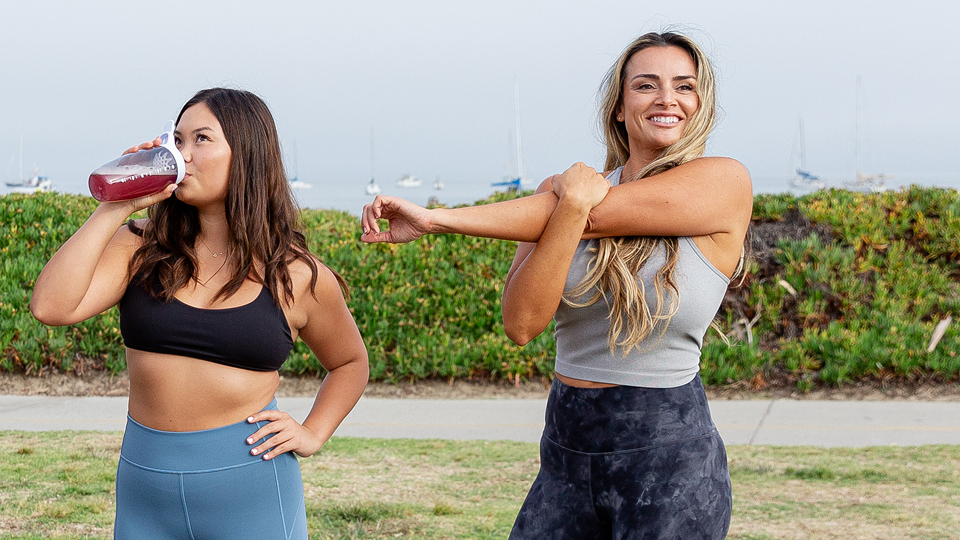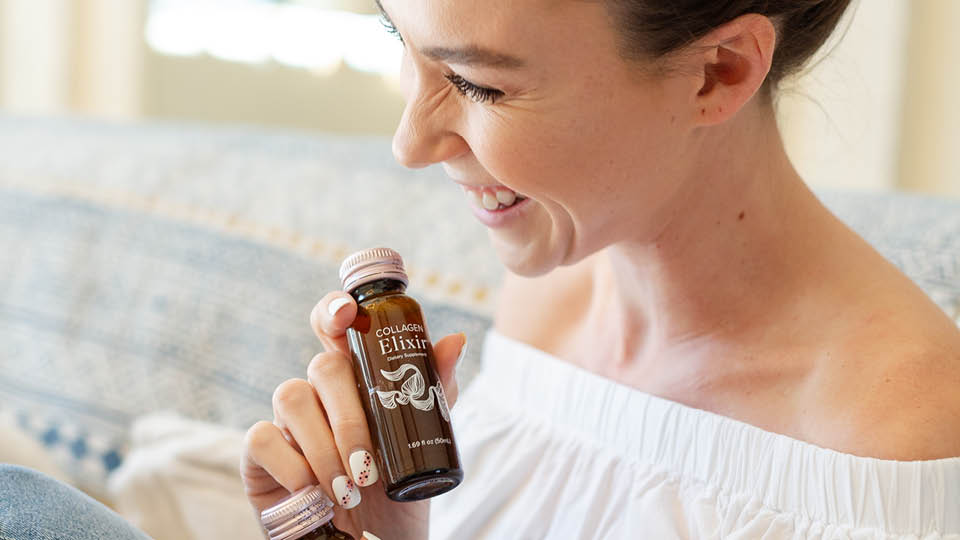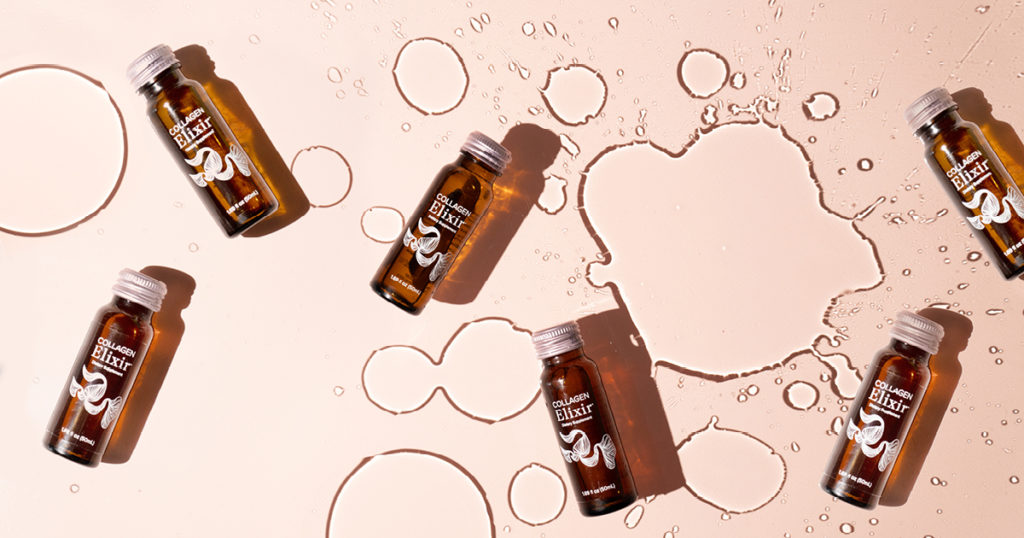You may have heard Sir Isaac Newton’s First Law of Motion before – a body in motion stays in motion. Though his law refers to general physics, there is something to be said about how it relates to our physical activity and health.
These 8 benefits will inspire you to keep your body in motion.
1. Maintaining Your Ideal Weight
It is no surprise that a more physically active lifestyle is vital in weight loss and weight maintenance goals. According to the American College of Sports Medicine, only 150 minutes of physical activity per week, or about 30 minutes a day on most days of the week, can help prevent weight gain and improve health (1). From vigorous aerobic exercise to simple lifestyle changes such as brisk walking and increased daily steps, there are many weight loss and weight maintenance benefits to increasing physical activity (2). Most people who lose weight regain it all back within 3 to 5 years, but regular exercise makes it more likely that you’ll maintain your ideal weight.
2. Promotes Longevity and Overall Health
Perhaps one of the most sought-after benefits of exercise is longevity. As we age, our body’s natural process of recycling and renewal, known as autophagy, declines. As this process slows, damaged and dysfunctional cellular components accumulate, resulting in damage to cells. Exercise is shown to increase autophagy signaling and intracellular protein recycling, thus promoting longevity and healthy aging (3). Even a minimum amount of exercise each day may not only lengthen your lifespan but may also reverse the physiological effects of aging and improve the quality of your lifespan (4). This means enjoying more years of a healthy and active lifestyle.
3. A Stronger Immune System
Believe it or not, exercise not only makes your muscles stronger, but it could also make your immune system stronger. Research shows that moderate intensity exercise helps to reduce chronic inflammation that may be present in the body. Exercise is thought to decrease levels of chronic inflammation by activating the body’s antioxidant defenses (5). It also promotes good sleep, which helps your immune system recover and lowers your stress levels, which helps to support a healthier immune system.
4. Improved Strength, Flexibility, and Bone Health
Aging is often accompanied by decreased flexibility and muscle strength. Muscles start to lose their elasticity, becoming tighter and shorter. Adopting a daily stretching routine can benefit various physical aspects including better flexibility and improved functionality of daily living. The mechanical properties of the muscle and flexibility, range of motion, and strength begin to increase with continued stretching and exercise (6,7). In addition, exercise may help build stronger bones by stimulating bone building and slowing bone loss, resulting in improved bone mass (8).
5. Sleep More Soundly
Good sleep is foundational to good health. According to the National Institute of Health, getting enough quality sleep is essential to survival, just as food and water (9). One way to improve the quality of sleep is with exercise. Studies have found that 20 to 30 minutes of exercise each day, well before bedtime, may improve your sleep by promoting deeper sleep and longer total sleep time while also decreasing the number of times you wake at night (10, 11).
6. Boosts Your Mood and Reduces Stress
Bad days are bound to happen, but don’t let them bring you down! One tried and true way to help relieve stress and improve your mood is by exercising. Physical activity releases endorphins, which are the feel-good molecules in the brain. Increasing endorphins in the brain through exercise has been associated with better stress management, improved mood, and a healthier general quality of life (12, 13). Research has also shown that 20 to 30 minutes of aerobic activity promotes calmness that can remain for several hours after exercise (14, 15).
7. Better Brain Health
Beyond its ability to improve mood and mental health, regular physical activity is linked to reduced signs of aging in the brain. Its ability to increase neurotransmitters such as serotonin and dopamine may explain the link between exercise and better cognitive function, improved learning capabilities, and enhanced neuroplasticity (15). Research has shown that physically active adults are more likely to maintain a youthful level of cognitive function and memory than sedentary adults (16).
8. Healthier Looking Skin
A lesser-known fact about exercise is that it is a powerful tool for healthy skin. Some research suggests that exercise boosts levels of a molecule that helps to maintain healthier and more youthful skin. This molecule, known as Interleukin-15 (IL-15), is involved in communication between the immune system and tissues throughout the body. Exercise has been shown to increase IL-15, and higher amounts of IL-15 bolster a healthy cell metabolism in skin (17). With this discovery, it might just be time to make exercise part of your skincare routine.
Our bodies are complex systems balancing biology, chemistry, and physics. Making sure we fuel our bodies with proper nutrition is important in addition to staying active and in motion. Newton said it best, a body at rest wants to stay at rest. So, let’s get moving to a happier, healthier life!
References
- Swift DL, Johannsen NM, Lavie CJ, et al. The role of exercise and physical activity in weight loss and maintenance. Prog Cardiovasc Dis. 2014 Jan-Feb;56(4):441-7.
- Diabetes Prevention Program (DPP) Research Group. The Diabetes Prevention Program (DPP): description of lifestyle intervention. Diabetes Care. 2002 Dec;25(12):2165-71.
- Escobar KA, Cole NH, Mermier CM, et al. Autophagy and aging: Maintaining the proteome through exercise and caloric restriction. Aging Cell. 2019 Feb;18(1):e12876.
- Gremeaux V, Gayda M, Lepers R, et al. Exercise and longevity. Maturitas. 2012 Dec;73(4):312-7.
- Woods JA, Vieira VJ, Keylock KT. Exercise, inflammation, and innate immunity. Immunol Allergy Clin N Am. 2009 May 31; 29(2):381-93.
- Gschwind YJ, Kressig RW, Lacroix A, et al. A best practice fall prevention exercise program to improve balance, strength / power, and psychosocial health in older adults: study protocol for a randomized controlled trial. BMC Geriatr. 2013 Oct 9;13:105.
- Kibar S, Yardimci FÖ, Evcik D, et al. Can a pilates exercise program be effective on balance, flexibility and muscle endurance? A randomized controlled trial. J Sports Med Phys Fitness. 2016 Oct;56(10):1139-46.
- Troy KL, Mancuso ME, Butler TA, et al. Exercise Early and Often: Effects of Physical Activity and Exercise on Women’s Bone Health. Int J Environ Res Public Health. 2018;15(5):878.
- U.S. Department of Health and Human Services, National Institute of Neurological Disorders and Stroke. (2006). NIH Strategic Plan for Research (NIH Publication No. 17-3440c). Retrieved from https://www.ninds.nih.gov/Disorders/Patient-Caregiver-Education/Understanding-Sleep
- Dolezal BA, Neufeld EV, Boland DM, et al. Interrelationship between Sleep and Exercise: A Systematic Review. Adv Prev Med. 2017;2017:1364387.
- Kelley GA, Kelley KS. Exercise and sleep: a systematic review of previous meta-analyses. J Evid Based Med. 2017 Feb;10(1):26-36.
- Strickland JC, Smith MA. The anxiolytic effects of resistance exercise. Front Psychol. 2014 Jul;5:753.
- Fritz KM, O’Connor PJ. Acute exercise improves mood and motivation in young men with ADHD symptoms. Med Sci Sport Med. 2016 Jun;48(6):1153.
- Meyer JD, Koltyn KF, Stegner AJ, et al. Influence of Exercise Intensity for Improving Depressed Mood in Depression: A Dose-Response Study. Behav Ther. 2016 Jul;47(4):527-37.
- Jackson EM. Stress relief: the role of exercise in stress management. ACSMs Health Fit J. 2013 May/Jun; 17(3):14-9.
- Zhu W, Wadley VG, Howard VJ, Hutto B, Blair SN, Hooker SP. Objectively Measured Physical Activity and Cognitive Function in Older Adults. Med Sci Sports Exerc. 2017 Jan;49(1):47-53.
- Crane JD, MacNeil LG, Lally JS, et al. Exercise-stimulated interleukin-15 is controlled by AMPK and regulates skin metabolism and aging. Aging Cell. 2015;14(4):625-634.
The post 8 Reasons to Keep Your Body Moving appeared first on Isagenix Health.
Source: IsagenixHealth.net





